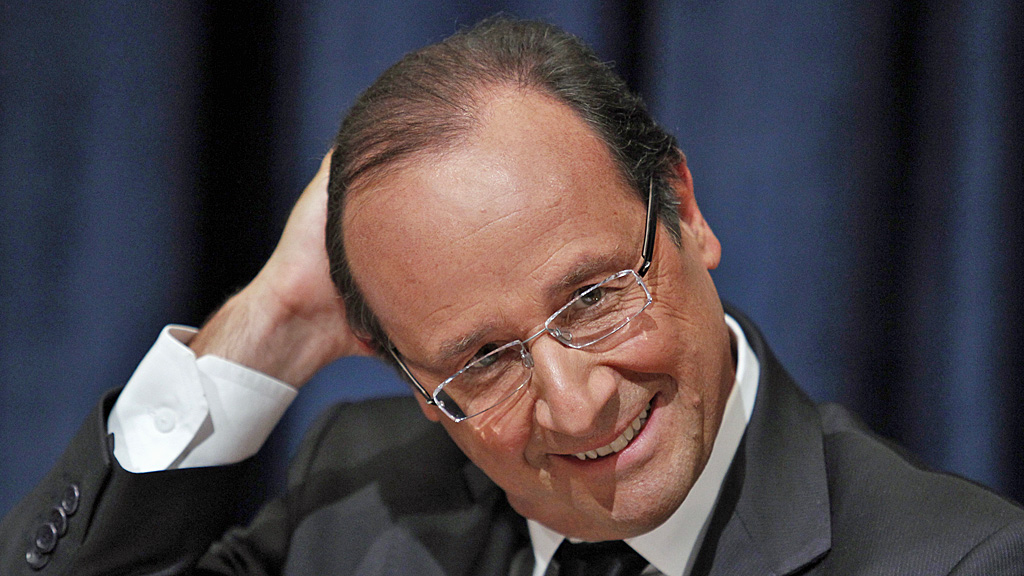Why France’s super-rich fear Hollande’s first budget
When Francois Hollande’s socialist government presents its budget to the French people, it will cast a harsh light on the distinction between election rhetoric and the realities of power.

France’s presidential poll, in April and May of this year, was notable for many things, not least some of the candidates’ proposals for rebalancing the country’s economy.
Jean-Luc Melenchon, for example, the Left Front’s candidate and a significant vote-winner in the first round, proposed a 100 per cent tax rate – effectively a maximum wage – on anyone earning more than 360,000 euros a year.
The eventual winner, Francois Hollande, came to power on a promise to raise income tax to 75 per cent on salaries of more than 1m euros – not as draconian as M Melenchon’s planned hike, but nonetheless a pledge that has become the signature measure of Friday’s announcement.
Deficit reduction
In the face of political pressure from within the eurozone, and in particular from Germany, President Hollande says he wants to reduce France’s deficit – the shortfall between income and expenditure – to less than 3 per cent next year.
Two-thirds of the money required for such a reduction is expected to come from new taxes, mostly on the wealthy and on large companies, rather than through cuts. And the 75 per cent super-tax plan has outraged many of France’s biggest – and highest profile – earners.
Reports say Bernard Arnault, owner of the LVMH luxury group and France’s richest man, is contemplating seeking Belgian nationality in the face of the 75 per cent rate.
Meanwhile Paul Agon, chairman and chief executive of L’Oreal, has warned that the new tax rule will make it “very, very difficult” to attract talent to work in France.
L’Oreal’s owner, Liliane Bettencourt, incidentally, was at the centre of “l’affaire Bettencourt” in 2010, which touched, among other things, on the amount of tax she paid (she is thought to be Europe’s richest woman).
Hitting hard
But Jennifer McKeown, senior European economist with Capital Economics, says the super-tax is merely a headline story, and that the plan will raise relatively little revenue.
“There will be measures that hit normal people harder if the budget deficit is to be reduced,” she told Channel 4 News. “Hollande is planning to reduce some public sector jobs. Before the election he campaign to increase teaching posts, but that will be more than offset by cuts elsewhere.”
The new president also needs to strike a balance between boosting growth by creating more jobs, and bolstering job security. He must encourage greater flexibility at the workplace while making it more difficult for employers to sack people.
Hollande says businesses and workers have until the end of 2012 to reach an agreement to shake up the labour market – or the government will intervene.
Continuing austerity
Whatever emerges from the budget, it unfolds to a background of continuing austerity across Europe. Spain this week announced its own budget for 2013, including a freeze on public sector pay for the third year in a row.
Across the Mediterranean, the Greek government must push an 11.5bn euro debt reduction package through parliament in order to secure the next tranche of its 130bn euro bailout.
Meanwhile, George Osborne continues to face down the clamour for a plan B to revive the UK economy, as a year of benefit cuts beckons from the start of 2013.
Jennifer McKeown warns that the response to President Hollande’s announcement will depend not just on the measures he comes up with, but on the credibility of his predictions for growth.
If the markets fail to endorse what he says, she says Germany could benefit most from flows out of France. “France will still look better than some of the other European economies. But bond yields are likely to creep up if the French economy fails to respond.”